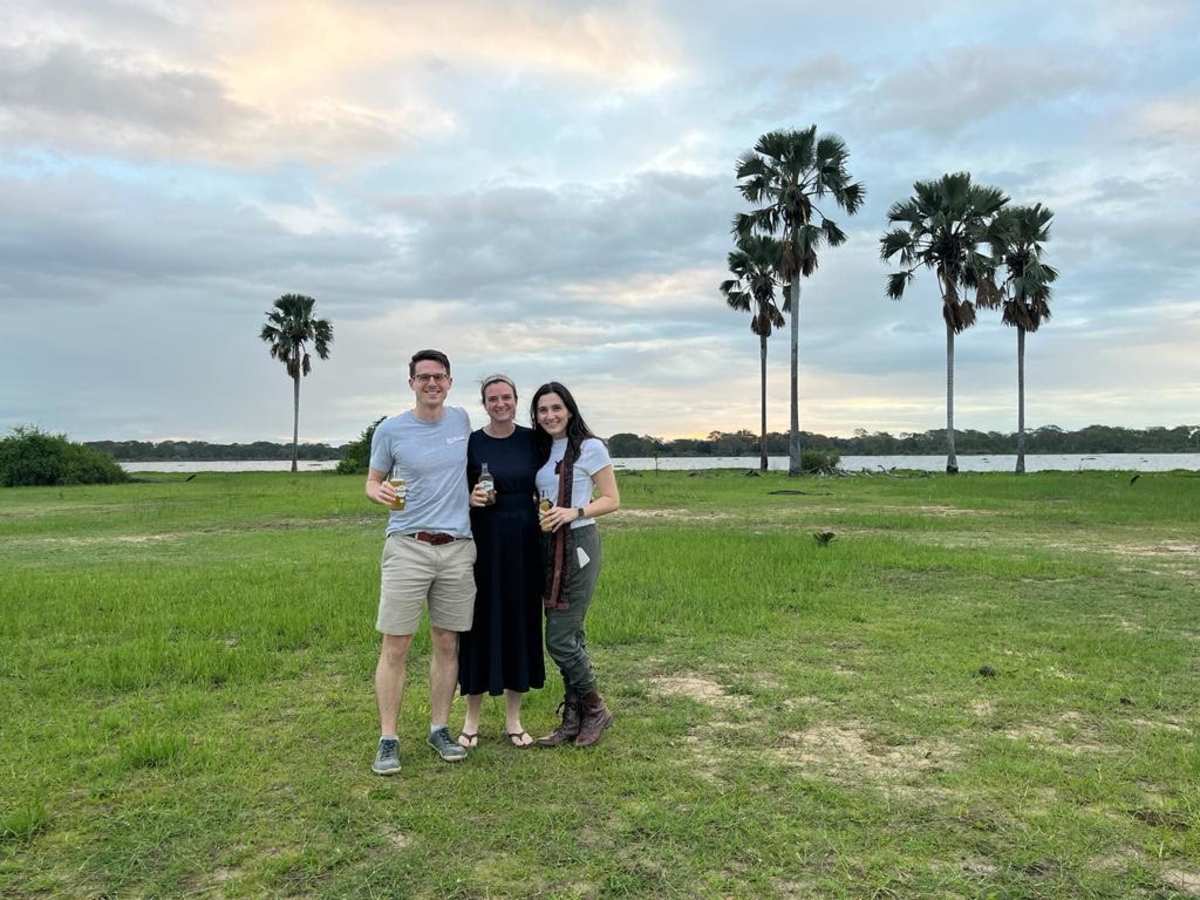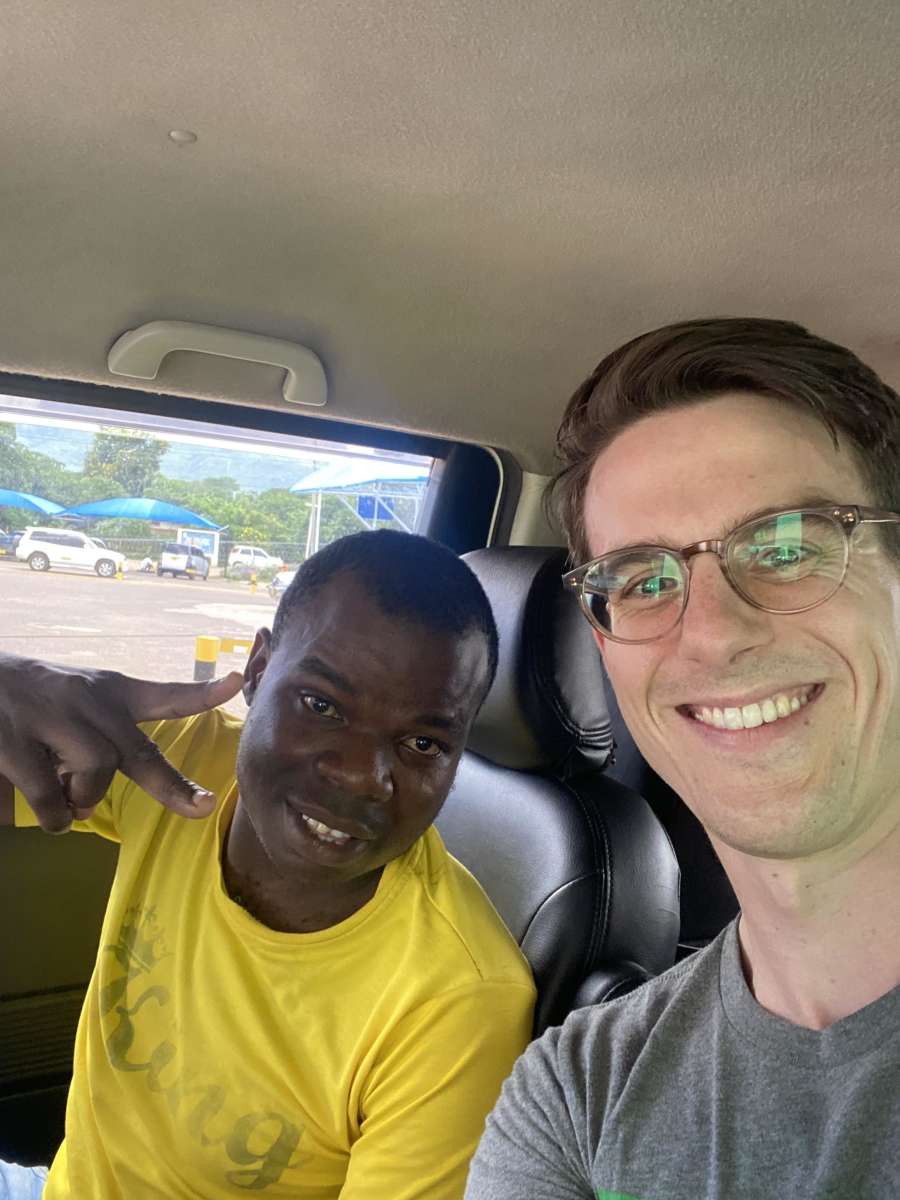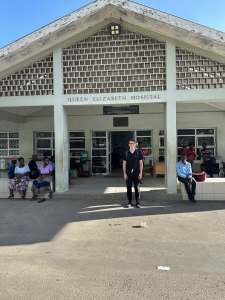Prisma Health Midlands has partnered with Kamuzu University of Health Sciences (KUHeS) in Blantyre, Malawi since 2019 to improve emergency care and exchange knowledge between the two sites. Malawi is a low income-country (LIC) in sub-Saharan Africa with a population of 19.13 million with an 82% of the population living in rural areas. While in Malawi, I will serve as a physician in the emergency department, assisting with direct patient care, daily rounds, and education sessions with the registrars and consultants.
Part of my trip will include participating in the conduction of a study to evaluate skill acquisition and retention of ultrasound guided regional nerve blocks among resident, fellow and faculty level physicians of multiple specialties. We aim to evaluate the feasibility of using these blocks as routine pain management in the emergency department and identify barriers to implementation. The study team plans to create 3D printed phantoms to provide ultrasound training in a low-income country which can be created at a great savings compared to buying commercial phantoms.
With regard to teaching ultrasound guided nerve blocks, the primary benefiting population will be the physicians at various levels (residents, fellows, and attendings) and from several specialties (emergency medicine, orthopedics, sports medicine, family medicine) at both Prisma Health Richland and Kamuzu University Health Sciences (KUHeS).
However, more broadly, Malawi has a burden of musculoskeletal pathology that taxes the health care system, with a mortality at 33 per 100,000, (4th highest annual incidence rate globally). KUHeS, like Prisma Health Richland, is a tertiary care center with an Emergency Medicine residency program and a trauma referral center caring for a large number of injured patients on a daily basis. These patients may benefit greatly from their providers having more skill, comfort, and access to this type of pain management. Unlike in middle to high income countries, use of opioid pain medication is a concern in low and middle-income countries due to side effects such as respiratory depression as resources for advanced airway management may not be readily available. This frequently leads to under-dosing pain medications.
Regional anesthesia has the potential to greatly improve the pain of patients suffering from fractures and burns at both Prisma Richland and Kamuzu University Health Sciences while simultaneously decreasing the use of opioid pain medications in the emergency department. Ideally, we hope to identify an effective, low-cost method of offering reliable analgesia to patients while providing physicians with the skills and knowledge to safely perform the procedure. Additionally, we hope to characterize a sustainable and affordable method of procedural teaching for future physicians.






"Welcome to Malawi"
It was amazing how often we heard those words during our trip. Stunning landscapes? Welcome to Malawi. Luggage get lost? Welcome to Malawi. Medical license approval delayed? Welcome to Malawi. Those words would play on repeat for 4 weeks, a refrain for everything I experienced during my first global health trip to Africa.
As happens on big international trips, we didn’t have the smoothest start to our journey. A long delay in Ethiopia due to weather, bags that didn’t make it all the way to Blantyre, and far too little sleep left us thrilled to finally be on the ground. Having never been to Sub-Saharan Africa before, I wasn’t sure exactly what to expect. Driving from the airport to our home for the next month, I was struck by how green everything was. Hilltops covered with lush forest blanket the landscape during the rainy season. Farther on, we were treated to the bustling city of Blantyre and learned about the city, local mountaintops, and culture from the man driving, Zack Brady.
Zack and Carly Brady have lived and worked in Blantyre for the last 5 years after Carly completed her EM residency and Global Health fellowship in Columbia, SC. She took a job in the emergency department (AETC) at Queen Elizabeth Hospital (Queen’s) in Blantyre. Carly helped start the country’s first EM residency program. As people go, they don’t get much better than the Brady’s and their kids. They’ve built an incredible community in Blantyre and graciously helped us with every aspect of our rotation.
Without too much delay, we toured the Queen’s AETC. I was equal parts excited and apprehensive. However, upon entering the AETC for the first time, I recognized the familiar rhythm of the emergency department and felt more at home.
About a week and a few days later, I was working my first non-buddy shift in their high acuity zone (Resuscitation). At 07:30 AM, I took sign out on 5 acutely ill patients and proceeded to put my head down to take care of many new and existing patients. Thank goodness the nurses were experienced and helped me interpret for patients, order labs, dose medications (I was surprised at the amount of my dosing knowledge that is from an EMR), and overall keep everyone stable and alive. We succeeded as a team, and it was a great shift. After what felt like a little over a day’s worth of work and with 9 active patients under my care, I looked at the clock and noted the time.
It was 11:00 AM. Welcome to Malawi.
I had come to Malawi to be challenged, to learn, to improve my skills, to work hard, to broaden my outlook on medicine, and to hopefully help some folks along the way. After a few chuckles and some introspection, it became apparent I was getting exactly what I asked for.
The next couple of weeks went by in a flash. Each shift brough new opportunities to learn and grow as I treated diseases we rarely see in the US such as malaria, TB, bacterial meningitis, organophosphate poisonings, and more. Equally, I spent time learning from the nurses, interns, registrars (residents), and consultants (attendings), about how to practice medicine I thought I knew well in a different way.
Each shift brought new challenges and more than a few obstacles. By the last week, it felt like I was functioning as a real part of the Queen’s AETC team. We had built rapport with much of the staff. I had several significant emergencies while the sole doctor in Resuscitation that ran smoothly thanks to the amazing staff. Then suddenly, we were at the end. We celebrated with the people we had met from the AETC, had a wonderful last day of fun with the Brady’s, and our month in Malawi was over.
Global Health work can be complicated. You want to fill a need for people without infringing upon their established structures and cultures. Hopefully, you use your time and skills productively without imposing upon them. Ultimately, you’d like to collaborate, build community, and leave something that lasts and makes their lives genuinely better.
My time in Malawi felt exactly like a global health experience that produces the kind of lasting, profound change that these types of experiences should strive for. And it had nothing to do with me or the one month I spent there. Instead, it’s a product of the hard work from people like the EM Consultants in the Queen’s AETC, the global health faculty at Prisma, the EM registrars and staff at Queen’s, and many others whose partnerships, hard work, and tireless advocacy make the world and their communities a better place.
I can’t imagine a better experience to make me want to continue Global Health work in the future. Admittedly, I had begun to experience some burn out after nearly 7 years of medical school and residency training. Turns out, what I needed to lift my spirits was a Welcome to Malawi.